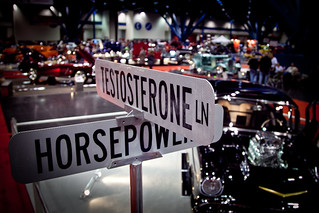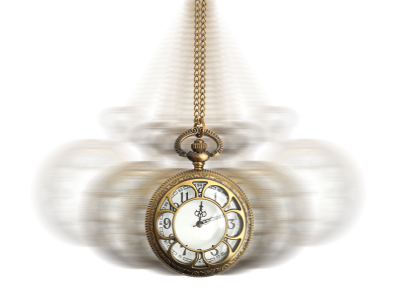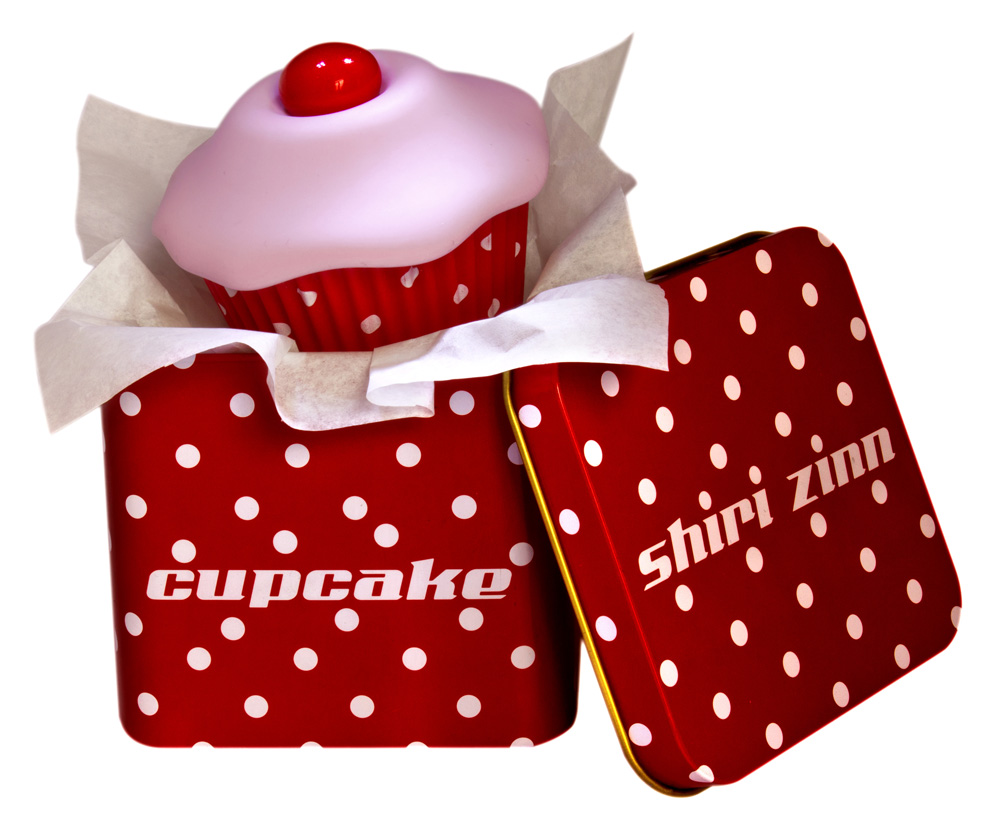Guyside: Getting testy about testosterone
 There’s no doubt that men think about the effects of aging on their bodies. And if there were, a viewing of ads for hair colouring, hair thickening agents, or erectile dysfunction drugs would quickly convince you. You could be a new man!
There’s no doubt that men think about the effects of aging on their bodies. And if there were, a viewing of ads for hair colouring, hair thickening agents, or erectile dysfunction drugs would quickly convince you. You could be a new man!
And as regular Flashfree readers will know, one of the things that’s been touted as a solution to the woes of the aging male is testosterone replacement therapy.
The basic idea is that men may have a condition that’s referred to as “Low T.” And so a gel, a patch, a tablet or an injection may bring you back to a more energetic, athletic, virile condition. The pitch has been made more and more convincingly, by all accounts: an Australian research team found that the sales of testsosterone treatments went from $150 million in 2001 to $1.8 billion in 2012.
That’s a 1200% increase. The Australian research indicated that the amount of testosterone being prescribed far outstripped the incidence of “male menopause” or andropause. So what’s going on? Oh, I suspect there’s a generous helping of vanity involved here.
But if it were simply a matter of making men feel better about themselves, it would just be a waste of money. A growing body of research evidence is suggesting that treating Low T may increase the risk of cardiac events. The most recent, an article from the open-access journal PLOS ONE, suggests a substantial increase in the risk of myocardial infarction — what we normally refer to as a heart attack — with the use of testosterone, for men under and over 65 years of age.
I’m sure there are men with diagnostic criteria that would make testosterone therapy an appropriate choice, with a careful calculation of the risks and benefits. But if my hair’s getting a little thin, if I’m not feeling as “macho” as I once was — do I really want to be using a hormone supplement that could put me at risk of a heart attack?
It’s very easy to succumb to marketing-based pitches that appeal to what we think we need as men. But it’s important for us to not jump at those pitches without thinking about the risks and the benefits carefully.
There was a rush to use estrogen and progesterone to help women with symptoms of menopause several years ago, and then a panic when those therapies were associated with increased cardiac symptoms.
I’m no doctor, and I’m certainly not saying that nobody should be using hormones in this way. But I do think that we should think through ALL of our medical decisions and ensure we’re taking the risks seriously.
(photo: CC-licenced image by Flickr user Ed Schipul)
Read MoreWednesday Bubble: Just press ‘play’
Now sex has an ‘easy button:’ Auditory Pheromones™. Never mind the Viagras of the world; according to Soulful Sex Coach Ellen Eatough and founder of Extatica, Inc, all you need is… love? Nope, not love, my dear readers, but music! Music “infused with auditory pheromones.”
In my five years devoted to writing about aging and menopause, I’ve never quite run across anything so absurd in my life. And while Eatough claims that jumpstarting one’s sex life is as easy as listening to her duel CD collection, Love Unbound, I think it’s time to step back and take stock of the number of promises listed on her website, a virtual Pandora’s Box of sexual fantasies unleashed at the push of a button:
- heightened libido and arousal rates
- increased passion and sexual response
- easier orgasms and multiple orgasms for women
- less inhibition, resulting in greater spontaneity
- deeper emotional intimacy
- better communication about sexual needs and desires
- an experience of sexual union
Although Eatough can’t explain how auditory pheromones work exactly to release the inner sexual being, she says that “We all develop patterns, or habits, to get through everyday life, but unconscious habits of emotional interaction, or the sequence of muscles we contract as we approach orgasm, can limit our range of potential response. When limiting patterns dissolve, exciting realms of possibility open up.” The thing is, many scientists will argue that genes cannot be activated by sound because we don’t have the sensory pathways that allow this. Human response to certain sensory stimuli, like music, are due to the release of neuropeptides. But enough of the scientific mumbo jumbo; Eatough says that there is a placebo-controlled study underway to demonstrate the existence of auditory pheromones and their role in creating a cornucopia of sexual pleasure and arousal, all at a push of an ‘easy button.’
Mindblowing? Indeed!
Read More
Friday Folly: Does your romantic life need a spicy boost?!
Ever since I first subscribed to Birchbox, I’ve been intrigued by monthly subscription services. I’ve given gifts of Bespoke to the favourite men in my life and ConciousBox to my health and eco savvy friends. Everyone who has received the monthly surprises in these boxes has been delighted. So, I am delighted to see that subscriptions have also moved into the boudoir.
I stumbled across SpicySubscriptions yesterday afternoon when I was taking a break from an otherwise hectic day. And, I love the idea of a gift of love to one who deserves it most: you.
I’ve not tried the Spice Box, but the idea is simple: monthly deliveries of lubricants, condoms, massage oils, candles, fragrances, sexual educational books, games, costumes, toys and lingerie to take the spice out of the kitchen and into the bedroom.
Sex during menopause can be challenging; women often have to deal with issues of vaginal dryness, a lack of desire or fatigue, all elements that can lead to sexual dysfunction. Not all of these problems can be conquered by a few toys or lubricant, but boy, oh, boy, shaking up the trees a bit sure can change one’s perspective and perhaps restore some of that lost luster.
I’ve not personally tried SpicySubscriptions so I cannot vouch for the quality of the products nor the company itself. However, I would gladly sign up for the ‘toy of the month’ or ‘spice box’ subscription just as I have signed up for BirchBox.
What do you think? Is Spice Box worth a Friday Fling?
Read MoreWednesday Bubble: Sexual health and hypnosis
You’re getting verrrrrrry…
turned on?
According to a newly reported study during this month’s American Psychological Association Annual Meeting, hypnosis might be the very thing to improve sexual desire and satisfaction.
If you step back, it does make sense. As I’ve written previously, hypnosis may help alleviate the frequency and severity of hot flashes. Think about it: fewer flashes may lead to better sleep and less stress. Both may beget a greater interest in being close, since hot flashes have been alleviated. According to the lead researcher, Dr. Gary Belkin, the warmth from closeness can trigger a hot flash, although admittedly, this is the first I’ve heard of it.
Still, the study, which examined the effect of hypnosis, appeared to suggest significant improvements in overall sexual health. 187 postmenopausal women participated in five weekly hypnosis relaxation sessions in which they received direct and indirect suggestions for relaxation, coolness and mental imagery or structured attention sessions that entailed supportive counseling. They also rated sexual desire and pleasure, symptoms and the degree to which hot flashes appeared to interfere with sex both at the beginning and end of the study.
Elkins reports that after 12 weeks, hypnotic relaxation therapy appeared to significantly improve sexual satisfaction and pleasure and decrease discomfort. And while he acknowledges that postmenopausal sexual health can be affected by factors other than hot flashes, e.g. fatigue, self esteem, partner’s health and the quality of the relationship, the positive effects of hypnosis warrants more research.
Meanwhile, perhaps self-hypnosis can help get those juices flowing again? Who knows?
Read More
Wednesday Bubble: Seize the moment. Seize a cupcake!
There is a Twitter feed entitled “Cupcake Quotes.” I thought that the following would be a great introduction for this post:
“Don’t wait for extraordinary moments. Seize the moment with cupcakes!”
What moment might I be talking about?
The moment when desires stirs deeply in your loins and there’s nothing there to satisfy but a…
CUPCAKE!
Oh, I’m not referring to the frosted handful of wondrous, creamy icing and moist cake, but to Designer Shiri Zinn’s Cupcake, “the adorable, mighty and oh, so sweet cupcake vibrator.”
WHAT?!
Yes, a cupcake vibrator for those times when you crave a sweet of the carnal variety, when you want to pop the cherry that “packs a punch,” when you desire delicious sensations that resonate ‘sweets for the sweet’ or when you simply want to soar…
Right. A cupcake, the nifty ‘pretty in pink and pokadots” vibrator that sits right in the palm of your hand, offers five speed variations and can innocently pass inspection during your next flight.
So, now that I’ve taken the mick, so to speak, let me tell you want I really think:
This one’s a huge dud. I took the cupcake for a test drive and let me tell you, it’s one of the worst designs ever and the cherry, while delivering the goods, just doesn’t make me want to repeat the experience…ever. This clitoral stimulation device is only appealing on one level: it’s a great gag gift (although it’s $48 price tag might leave you with a sour aftertaste) or a moment of fun for a girls night out. Otherwise? Save your money and check out BloomEnjoyYourself.com for their full line of high-end toys to get you where you want to go. The site is also a good source of curated, vetted information on sexual health and adds some fun information in its Daily Bloom.
Word to the wise dear readers: the next time you are ready to carpe diem, find your passion, have your cake and eat it too, well, I recommend that you reach for the real deal and save the cupcake for sweet afterthoughts.
[Disclosure: Bloom Enjoy Yourself contacted me to ascertain my interest in testing out Shiri Zinn’s Cupcake. I was not paid for an endorsement nor was the blog post provided to them ahead of publication for vetting or review.]
Read More
Still feeling like a shadow of your former self?
Must be “Low T,” right?
Low T is a global problem of epic proportions. In fact, UK researchers are reporting that testosterone prescribing has reached epidemic proportions, with an increase in prescriptions by almost 90% between the years 2001 and 2010. Moreover, the majority of these prescriptions have not been for an established hypogonadism (a decline in the functional ability of the testes to produce ample amounts of testosterone. This can lead to erectile dysfunction, low libido and a low sex drive. Aside from sexual dysfunction, hypogonadism can also cause depression, lethargy and fatigue. And yet, the most recent statistics from the Urology Care Foundation suggest that low T is a problem mostly affecting men 60 and above. In the UK study, only 6.3% of men had definite hypogonadism. So, what gives?
Money.
A few years ago, the pharmaceutical industry jumped on the male menopause wagon and the current campaign is a doozie. The condition? Low T, which is better known as low testosterone, andropause or the commonly used misnomer, “male menopause.” In fact, you can take a simple quiz to learn if you have Low T and if you need to speak to your doctor.
I’ve written about male menopause and have also directed readers to data that shows that it may not be all that it’s cracked up to be. Is it irritable male syndrome? Or is it another marketing tool to sell drugs to unsuspecting men who are aging and losing their virility?
Truly, if you are feeling like a shadow of your former self, there may be other things at play than testosterone. You might want to speak to your healthcare practitioner before jumping on the Low T wagon. Too much testosterone can lead to heart disease and negatively affect the prostate gland.
The medical community remains unconvinced about the condition and the need to treat it. In fact, that might be why, in 2011, University of Pennsylvania researchers started putting it to the test with the T Trial, which may solve this question once and for all.
Read More










